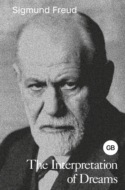Kitabı oku: «Gone with the Wind. Volume 2 / Унесенные ветром. Том 2», sayfa 6
He suddenly had her by the shoulders.
“Not quite yet. Do you feel well enough to talk sense?”
“Let me go!”
“You are well enough, I see. Then, tell me this. Was I the only iron you had in the fire?” His eyes were keen and alert, watching every change in her face.
“What do you mean?”
“Was I the only man you were going to try this on?”
“Is that any of your business?”
“More than you realize. Are there any other men on your string? Tell me!”
“No.”
“Incredible. I can't imagine you without five or six in reserve. Surely someone will turn up to accept your interesting proposition. I feel so sure of it that I want to give you a little advice.”
“I don't want your advice.”
“Nevertheless I will give it. Advice seems to be the only thing I can give you at present. Listen to it, for it's good advice. When you are trying to get something out of a man, don't blurt it out as you did to me. Do try to be more subtle, more seductive. It gets better results. You used to know how, to perfection. But just now when you offered me your-er-collateral for my money you looked as hard as nails. I've seen eyes like yours above a dueling pistol twenty paces from me and they aren't a pleasant sight. They evoke no ardor in the male breast. That's no way to handle men, my dear. You are forgetting your early training.”
“I don't need you to tell me how to behave,” she said and wearily put on her bonnet. She wondered how he could jest so blithely with a rope about his neck and her pitiful circumstances before him. She did not even notice that his hands were jammed in his pockets in hard fists as if he were straining at his own impotence.
“Cheer up,” he said, as she tied the bonnet strings. “You can come to my hanging and it will make you feel lots better. It'll even up all your old scores with me-even this one. And I'll mention you in my will.”
“Thank you, but they may not hang you till it's too late to pay the taxes,” she said with a sudden malice that matched his own, and she meant it.
Chapter XXXV
It was raining when she came out of the building and the sky was a dull putty color. The soldiers on the square had taken shelter in their huts and the streets were deserted. There was no vehicle in sight and she knew she would have to walk the long way home.
The brandy glow faded as she trudged along. The cold wind made her shiver and the chilly needle-like drops drove hard into her face. The rain quickly penetrated Aunt Pitty's thin cloak until it hung in clammy folds about her. She knew the velvet dress was being ruined and as for the tail feathers on the bonnet, they were as drooping and draggled as when their former owner had worn them about the wet barn yard of Tara. The bricks of the sidewalk were broken and, for long stretches, completely gone. In these spots the mud was ankle deep and her slippers stuck in it as if it were glue, even coming completely off her feet. Every time she bent over to retrieve them, the hem of the dress fell in the mud. She did not even try to avoid puddles but stepped dully into them, dragging her heavy skirts after her. She could feel her wet petticoat and pantalets cold about her ankles, but she was beyond caring about the wreck of the costume on which she had gambled so much. She was chilled and disheartened and desperate.
How could she ever go back to Tara and face them after her brave words? How could she tell them they must all go-somewhere? How could she leave it all, the red fields, the tall pines, the dark swampy bottom lands, the quiet burying ground where Ellen lay in the cedars' deep shade?
Hatred of Rhett burned in her heart as she plodded along the slippery way. What a blackguard he was! She hoped they did hang him, so she would never have to face him again with his knowledge of her disgrace and her humiliation. Of course, he could have gotten the money for her if he'd wanted to get it. Oh, hanging was too good for him! Thank God, he couldn't see her now, with her clothes soaking wet and her hair straggling and her teeth chattering. How hideous she must look and how he would laugh!
The negroes she passed turned insolent grins at her and laughed among themselves as she hurried by, slipping and sliding in the mud, stopping, panting to replace her slippers. How dared they laugh, the black apes! How dared they grin at her, Scarlett O'Hara of Tara! She'd like to have them all whipped until the blood ran down their backs. What devils the Yankees were to set them free, free to jeer at white people!
As she walked down Washington Street, the landscape was as dreary as her own heart. Here there was none of the bustle and cheerfulness which she had noted on Peachtree Street. Here many handsome homes had once stood, but few of them had been rebuilt. Smoked foundations and the lonesone blackened chimneys, now known as “Sherman's Sentinels,” appeared with disheartening frequency. Overgrown paths led to what had been houses-old lawns thick with dead weeds, carriage blocks bearing names she knew so well, hitching posts which would never again know the knot of reins. Cold wind and rain, mud and bare trees, silence and desolation. How wet her feet were and how long the journey home!
She heard the splash of hooves behind her and moved farther over on the narrow sidewalk to avoid more mud splotches on Aunt Pittypat's cloak. A horse and buggy came slowly up the road and she turned to watch it, determined to beg a ride if the driver was a white person. The rain obscured her vision as the buggy came abreast, but she saw the driver peer over the tarpaulin that stretched from the dashboard to his chin. There was something familiar about his face and as she stepped out into the road to get a closer view, there was an embarrassed little cough from the man and a well-known voice cried in accents of pleasure and astonishment: “Surely, it can't be Miss Scarlett!”
“Oh, Mr. Kennedy!” she cried, splashing across the road and leaning on the muddy wheel, heedless of further damage to the cloak. “I was never so glad to see anybody in my life!”
He colored with pleasure at the obvious sincerity of her words, hastily squirted a stream of tobacco juice from the opposite side of the buggy and leaped spryly to the ground. He shook her hand enthusiastically and holding up the tarpaulin, assisted her into the buggy.
“Miss Scarlett, what are you doing over in this section by yourself? Don't you know it's dangerous these days? And you are soaking wet. Here, wrap the robe around your feet.”
As he fussed over her, clucking like a hen, she gave herself up to the luxury of being taken care of. It was nice to have a man fussing and clucking and scolding, even if it was only that old maid in pants, Frank Kennedy. It was especially soothing after Rhett's brutal treatment. And oh, how good to see a County face when she was so far from home! He was well dressed, she noticed, and the buggy was new too. The horse looked young and well fed, but Frank looked far older than his years, older than on that Christmas eve when he had been at Tara with his men. He was thin and sallow faced and his yellow eyes were watery and sunken in creases of loose flesh. His ginger-colored beard was scantier than ever, streaked with tobacco juice and as ragged as if he clawed at it incessantly. But he looked bright and cheerful, in contrast with the lines of sorrow and worry and weariness which Scarlett saw in faces everywhere.
“It's a pleasure to see you,” said Frank warmly. “I didn't know you were in town. I saw Miss Pittypat only last week and she didn't tell me you were coming. Did-er-ahem-did anyone else come up from Tara with you?”
He was thinking of Suellen, the silly old fool.
“No,” she said, wrapping the warm lap robe about her and trying to pull it up around her neck. “I came alone. I didn't give Aunt Pitty any warning.”
He chirruped to the horse and it plodded off, picking its way carefully down the slick road.
“All the folks at Tara well?”
“Oh, yes, so-so.”
She must think of something to talk about, yet it was so hard to talk. Her mind was leaden with defeat and all she wanted was to lie back in this warm blanket and say to herself: “I won't think of Tara now. I'll think of it later, when it won't hurt so much.” If she could just get him started talking on some subject which would hold him all the way home, so she would have nothing to do but murmur “How nice” and “You certainly are smart” at intervals.
“Mr. Kennedy, I'm so surprised to see you. I know I've been a bad girl, not keeping up with old friends, but I didn't know you were here in Atlanta. I thought somebody told me you were in Marietta.”
“I do business in Marietta, a lot of business,” he said. “Didn't Miss Suellen tell you I had settled in Atlanta? Didn't she tell you about my store?”
Vaguely she had a memory of Suellen chattering about Frank and a store but she never paid much heed to anything Suellen said. It had been sufficient to know that Frank was alive and would some day take Suellen off her hands.
“No, not a word,” she lied. “Have you a store? How smart you must be!”
He looked a little hurt at hearing that Suellen had not published the news but brightened at the flattery.
“Yes, I've got a store, and a pretty good one I think. Folks tell me I'm a born merchant.”
He laughed pleasedly, the tittery cackling laugh which she always found so annoying.
Conceited old fool, she thought.
“Oh, you could be a success at anything you turned your hand to, Mr. Kennedy. But how on earth did you ever get started with the store? When I saw you Christmas before last you said you didn't have a cent in the world.”
He cleared his throat raspingly, clawed at his whiskers and smiled his nervous timid smile.
“Well, it's a long story, Miss Scarlett.”
Thank the Lord! she thought. Perhaps it will hold him till we get home. And aloud: “Do tell!”
“You recall when we came to Tara last, hunting for supplies? Well, not long after that I went into active service. I mean real fighting. No more commissary for me. There wasn't much need for a commissary, Miss Scarlett, because we couldn't hardly pick up a thing for the army, and I thought the place for an able-bodied man was in the fighting line. Well, I fought along with the cavalry for a spell till I got a minie ball through the shoulder.”
He looked very proud and Scarlett said: “How dreadful!”
“Oh, it wasn't so bad, just a flesh wound,” he said deprecatingly. “I was sent down south to a hospital and when I was just about well, the Yankee raiders came through. My, my, but that was a hot time! We didn't have much warning and all of us who could walk helped haul out the army stores and the hospital equipment to the train tracks to move it. We'd gotten one train about loaded when the Yankees rode in one end of town and out we went the other end as fast as we could go. My, my, that was a mighty sad sight, sitting on top of that train and seeing the Yankees burn those supplies we had to leave at the depot. Miss Scarlett, they burned about a half-mile of stuff we had piled up there along the tracks. We just did get away ourselves.”
“How dreadful!”
“Yes, that's the word. Dreadful. Our men had come back into Atlanta then and so our train was sent here. Well, Miss Scarlett, it wasn't long before the war was over and-well, there was a lot of china and cots and mattresses and blankets and nobody claiming them. I suppose rightfully they belonged to the Yankees. I think those were the terms of the surrender, weren't they?”
“Um,” said Scarlett absently. She was getting warmer now and a little drowsy.
“I don't know till now if I did right,” he said, a little querulously. “But the way I figured it, all that stuff wouldn't do the Yankees a bit of good. They'd probably burn it. And our folks had paid good solid money for it, and I thought it still ought to belong to the Confederacy or to the Confederates. Do you see what I mean?”
“Um.”
“I'm glad you agree with me, Miss Scarlett. In a way, it's been on my conscience. Lots of folks have told me: 'Oh, forget about it, Frank,' but I can't. I couldn't hold up my head if I thought I'd done what wasn't right. Do you think I did right?”
“Of course,” she said, wondering what the old fool had been talking about. Some struggle with his conscience. When a man got as old as Frank Kennedy he ought to have learned not to bother about things that didn't matter. But he always was so nervous and fussy and old maidish.
“I'm glad to hear you say it. After the surrender I had about ten dollars in silver and nothing else in the world. You know what they did to Jonesboro and my house and store there. I just didn't know what to do. But I used the ten dollars to put a roof on an old store down by Five Points and I moved the hospital equipment in and started selling it. Everybody needed beds and china and mattresses and I sold them cheap, because I figured it was about as much other folks' stuff as it was mine. But I cleared money on it and bought some more stuff and the store just went along fine. I think I'll make a lot of money on it if things pick up.”
At the word “money,” her mind came back to him, crystal clear.
“You say you've made money?”
He visibly expanded under her interest. Few women except Suellen had ever given him more than perfunctory courtesy and it was very flattering to have a former belle like Scarlett hanging on his words. He slowed the horse so they would not reach home before he had finished his story.
“I'm not a millionaire, Miss Scarlett, and considering the money I used to have, what I've got now sounds small. But I made a thousand dollars this year. Of course, five hundred of it went to paying for new stock and repairing the store and paying the rent. But I've made five hundred clear and as things are certainly picking up, I ought to clear two thousand next year. I can sure use it, too, for you see, I've got another iron in the fire.”
Interest had sprung up sharply in her at the talk of money. She veiled her eyes with thick bristly lashes and moved a little closer to him.
“What does that mean, Mr. Kennedy?”
He laughed and slapped the reins against the horse's back.
“I guess I'm boring you, talking about business, Miss Scarlett. A pretty little woman like you doesn't need to know anything about business.”
The old fool.
“Oh, I know I'm a goose about business but I'm so interested! Please tell me all about it and you can explain what I don't understand.”
“Well, my other iron is a sawmill.”
“A what?”
“A mill to cut up lumber and plane it. I haven't bought it yet but I'm going to. There's a man named Johnson who has one, way out Peachtree road, and he's anxious to sell it. He needs some cash right away, so he wants to sell and stay and run it for me at a weekly wage. It's one of the few mills in this section, Miss Scarlett. The Yankees destroyed most of them. And anyone who owns a sawmill owns a gold mine, for nowadays you can ask your own price for lumber. The Yankees burned so many houses here and there aren't enough for people to live in and it looks like folks have gone crazy about rebuilding. They can't get enough lumber and they can't get it fast enough. People are just pouring into Atlanta now, all the folks from the country districts who can't make a go of farming without darkies and the Yankees and Carpetbaggers who are swarming in trying to pick our bones a little barer than they already are. I tell you Atlanta's going to be a big town soon. They've got to have lumber for their houses, so I'm going to buy this mill just as soon as-well, as soon as some of the bills owing me are paid. By this time next year, I ought to be breathing easier about money. I–I guess you know why I'm so anxious to make money quickly, don't you?”
He blushed and cackled again. He's thinking of Suellen, Scarlett thought in disgust.
For a moment she considered asking him to lend her three hundred dollars, but wearily she rejected the idea. He would be embarrassed; he would stammer; he would offer excuses, but he wouldn't lend it to her. He had worked hard for it, so he could marry Suellen in the spring and if he parted with it, his wedding would be postponed indefinitely. Even if she worked on his sympathies and his duty toward his future family and gained his promise of a loan, she knew Suellen would never permit it. Suellen was getting more and more worried over the fact that she was practically an old maid and she would move heaven and earth to prevent anything from delaying her marriage.
What was there in that whining complaining girl to make this old fool so anxious to give her a soft nest? Suellen didn't deserve a loving husband and the profits of a store and a sawmill. The minute Sue got her hands on a little money she'd give herself unendurable airs and never contribute one cent toward the upkeep of Tara. Not Suellen! She'd think herself well out of it and not care if Tara went for taxes or burned to the ground, so long as she had pretty clothes and a “Mrs.” in front of her name.
As Scarlett thought of Suellen's secure future and the precarious one of herself and Tara, anger flamed in her at the unfairness of life. Hastily she looked out of the buggy into the muddy street, lest Frank should see her expression. She was going to lose everything she had, while Sue- Suddenly a determination was born in her.
Suellen should not have Frank and his store and his mill!
Suellen didn't deserve them. She was going to have them herself. She thought of Tara and remembered Jonas Wilkerson, venomous as a rattler, at the foot of the front steps, and she grasped at the last straw floating above the shipwreck of her life. Rhett had failed her but the Lord had provided Frank.
But can I get him? Her fingers clenched as she looked unseeingly into the rain. Can I make him forget Sue and propose to me real quick? If I could make Rhett almost propose, I know I could get Frank! Her eyes went over him, her lids flickering. Certainly, he's no beauty, she thought coolly, and he's got very bad teeth and his breath smells bad and he's old enough to be my father. Moreover, he's nervous and timid and well meaning, and I don't know of any more damning qualities a man can have. But at least, he's a gentleman and I believe I could stand living with him better than with Rhett. Certainly I could manage him easier. At any rate, beggars can't be choosers.
That he was Suellen's fiance caused her no qualm of conscience. After the complete moral collapse which had sent her to Atlanta and to Rhett, the appropriation of her sister's betrothed seemed a minor affair and one not to be bothered with at this time.
With the rousing of fresh hope, her spine stiffened and she forgot that her feet were wet and cold. She looked at Frank so steadily, her eyes narrowing, that he became somewhat alarmed and she dropped her gaze swiftly, remembering Rhett's words: “I've seen eyes like yours above a dueling pistol… They evoke no ardor in the male breast.”
“What's the matter, Miss Scarlett? You got a chill?”
“Yes,” she answered helplessly. “Would you mind-” She hesitated timidly. “Would you mind if I put my hand in your coat pocket? It's so cold and my muff is soaked through.”
“Why-why-of course not! And you haven't any gloves! My, my, what a brute I've been idling along like this, talking my head off when you must be freezing and wanting to get to a fire. Giddap, Sally! By the way, Miss Scarlett, I've been so busy talking about myself I haven't even asked you what you were doing in this section in this weather?”
“I was at the Yankee headquarters,” she answered before she thought. His sandy brows went up in astonishment.
“But Miss Scarlett! The soldiers- Why-”
“Mary, Mother of God, let me think of a real good lie,” she prayed hastily. It would never do for Frank to suspect she had seen Rhett. Frank thought Rhett the blackest of blackguards and unsafe for decent women to speak to.
“I went there-I went there to see if-if any of the officers would buy fancy work from me to send home to their wives. I embroider very nicely.”
He sank back against the seat aghast, indignation struggling with bewilderment.
“You went to the Yankees- But Miss Scarlett! You shouldn't. Why-why… Surely your father doesn't know! Surely, Miss Pittypat-”
“Oh, I shall die if you tell Aunt Pittypat!” she cried in real anxiety and burst into tears. It was easy to cry, because she was so cold and miserable, but the effect was startling. Frank could not have been more embarrassed or helpless if she had suddenly begun disrobing. He clicked his tongue against his teeth several times, muttering “My! My!” and made futile gestures at her. A daring thought went through his mind that he should draw her head onto his shoulder and pat her but he had never done this to any woman and hardly knew how to go about it. Scarlett O'Hara, so high spirited and pretty, crying here in his buggy. Scarlett O'Hara, the proudest of the proud, trying to sell needlework to the Yankees. His heart burned.
She sobbed on, saying a few words now and then, and he gathered that all was not well at Tara. Mr. O'Hara was still “not himself at all,” and there wasn't enough food to go around for so many. So she had to come to Atlanta to try to make a little money for herself and her boy. Frank clicked his tongue again and suddenly he found that her head was on his shoulder. He did not quite know how it got there. Surely he had not placed it there, but there her head was and there was Scarlett helplessly sobbing against his thin chest, an exciting and novel sensation for him. He patted her shoulder timidly, gingerly at first, and when she did not rebuff him he became bolder and patted her firmly. What a helpless, sweet, womanly little thing she was. And how brave and silly to try her hand at making money by her needle. But dealing with the Yankees-that was too much.
“I won't tell Miss Pittypat, but you must promise me, Miss Scarlett, that you won't do anything like this again. The idea of your father's daughter-”
Her wet green eyes sought his helplessly.
“But, Mr. Kennedy, I must do something. I must take care of my poor little boy and there is no one to look after us now.”
“You are a brave little woman,” he pronounced, “but I won't have you do this sort of thing. Your family would die of shame.”
“Then what will I do?” The swimming eyes looked up to him as if she knew he knew everything and was hanging on his words.
“Well, I don't know right now. But I'll think of something.”
“Oh, I know you will! You are so smart-Frank.”
She had never called him by his first name before and the sound came to him as a pleasant shock and surprise. The poor girl was probably so upset she didn't even notice her slip. He felt very kindly toward her and very protecting. If there was anything he could do for Suellen O'Hara's sister, he would certainly do it. He pulled out a red bandanna handkerchief and handed it to her and she wiped her eyes and began to smile tremulously.
“I'm such a silly little goose,” she said apologetically. “Please forgive me.”
“You aren't a silly little goose. You're a very brave little woman and you are trying to carry to heavy a load. I'm afraid Miss Pittypat isn't going to be much help to you. I hear she lost most of her property and Mr. Henry Hamilton's in bad shape himself. I only wish I had a home to offer you shelter in. But, Miss Scarlett, you just remember this, when Miss Suellen and I are married, there'll always be a place for you under our roof and for Wade Hampton too.”
Now was the time! Surely the saints and angels watched over her to give her such a Heaven-sent opportunity. She managed to look very startled and embarrassed and opened her mouth as if to speak quickly and then shut it with a pop.
“Don't tell me you didn't know I was to be your brother-in-law this spring,” he said with nervous jocularity.
And then, seeing her eyes fill up with tears, he questioned in alarm: “What's the matter? Miss Sue's not ill, is she?”
“Oh, no! No!”
“There is something wrong. You must tell me.”
“Oh, I can't! I didn't know! I thought surely she must have written you- Oh, how mean!”
“Miss Scarlett, what is it?”
“Oh, Frank, I didn't mean to let it out but I thought, of course, you knew-that she had written you-”
“Written me what?” He was trembling.
“Oh, to do this to a fine man like you!”
“What's she done?”
“She didn't write you? Oh, I guess she was too ashamed to write you. She should be ashamed! Oh, to have such a mean sister!”
By this time, Frank could not even get questions to his lips. He sat staring at her, gray faced, the reins slack in his hands.
“She's going to marry Tony Fontaine next month. Oh, I'm so sorry, Frank. So sorry to be the one to tell you. She just got tired of waiting and she was afraid she'd be an old maid.”
* * *
Mammy was standing on the front porch when Frank helped Scarlett out of the buggy. She had evidently been standing there for some time, for her head rag was damp and the old shawl clutched tightly about her showed rain spots. Her wrinkled black face was a study in anger and apprehension and her lip was pushed out farther than Scarlett could ever remember. She peered quickly at Frank and, when she saw who it was, her face changed-pleasure, bewilderment and something akin to guilt spreading over it. She waddled forward to Frank with pleased greetings and grinned and curtsied when he shook her hand.
“It sho is good ter see home folks,” she said. “How is you, Mist' Frank? My, ain' you lookin' fine an' gran'! Effen Ah'd knowed Miss Scarlett wuz out wid you, Ah wouldn' worrit so. Ah'd knowed she wuz tekken keer of. Ah come back hyah an' fine she gone an' Ah been as 'stracted as a chicken wid its haid off, thinkin' she runnin' roun' dis town by herseff wid all dese trashy free issue niggers on de street. Huccome you din' tell me you gwine out, honey? An' you wid a cole!”
Scarlett winked slyly at Frank and, for all his distress at the bad news he had just heard, he smiled, knowing she was enjoining silence and making him one in a pleasant conspiracy.
“You run up and fix me some dry clothes, Mammy,” she said. “And some hot tea.”
“Lawd, yo' new dress is plum ruint,” grumbled Mammy. “Ah gwine have a time dryin' it an' brushin' it, so it'll be fit ter be wo' ter de weddin' ternight.”
She went into the house and Scarlett leaned close to Frank and whispered: “Do come to supper tonight. We are so lonesome. And we're going to the wedding afterward. Do be our escort! And, please don't say anything to Aunt Pitty about-about Suellen. It would distress her so much and I can't bear for her to know that my sister-”
“Oh, I won't! I won't!” Frank said hastily, wincing from the very thought.
“You've been so sweet to me today and done me so much good. I feel right brave again.” She squeezed his hand in parting and turned the full battery of her eyes upon him.
Mammy, who was waiting just inside the door, gave her an inscrutable look and followed her, puffing, up the stairs to the bedroom. She was silent while she stripped off the wet clothes and hung them over chairs and tucked Scarlett into bed. When she had brought up a cup of hot tea and a hot brick, rolled in flannel, she looked down at Scarlett and said, with the nearest approach to an apology in her voice Scarlett had ever heard: “Lamb, huccome you din' tell yo' own Mammy whut you wuz upter? Den Ah wouldn' had ter traipse all dis way up hyah ter 'Lanta. Ah is too ole an' too fat fer sech runnin' roun'.”
“What do you mean?”
“Honey, you kain fool me. Ah knows you. An' Ah seed Mist' Frank's face jes' now an' Ah seed yo' face, an' Ah kin read yo' mine lak a pahson read a Bible. An' Ah heerd dat whisperin' you wuz givin' him 'bout Miss Suellen. Effen Ah'd had a notion 'twuz Mist' Frank you wuz affer, Ah'd stayed home whar Ah b'longs.”
“Well,” said Scarlett shortly, snuggling under the blankets and realizing it was useless to try to throw Mammy off the scent, “who did you think it was?”
“Chile, Ah din' know but Ah din' lak de look on yo' face yestiddy. An' Ah 'membered Miss Pittypat writin' Miss Melly dat dat rapscallion Butler man had lots of money an' Ah doan fergit whut Ah hears. But Mist' Frank, he a gempmum even ef he ain' so pretty.”
Scarlett gave her a sharp look and Mammy returned the gaze with calm omniscience.
“Well, what are you going to do about it? Tattle to Suellen?”
“Ah is gwine ter he'p you pleasure Mist' Frank eve'y way Ah knows how,” said Mammy, tucking the covers about Scarlett's neck.
Scarlett lay quietly for a while, as Mammy fussed about the room, relief flooding her that there was no need for words between them. No explanations were asked, no reproaches made. Mammy understood and was silent. In Mammy, Scarlett had found a realist more uncompromising than herself. The mottled wise old eyes saw deeply, saw clearly, with the directness of the savage and the child, undeterred by conscience when danger threatened her pet. Scarlett was her baby and what her baby wanted, even though it belonged to another, Mammy was willing to help her obtain. The rights of Suellen and Frank Kennedy did not even enter her mind, save to cause a grim inward chuckle. Scarlett was in trouble and doing the best she could, and Scarlett was Miss Ellen's child. Mammy rallied to her with never a moment's hesitation.
Scarlett felt the silent reinforcement and, as the hot brick at her feet warmed her, the hope which had flickered faintly on the cold ride home grew into a flame. It swept through her, making her heart pump the blood through her veins in pounding surges. Strength was coming back and a reckless excitement which made her want to laugh aloud. Not beaten yet, she thought exultantly.
“Hand me the mirror, Mammy,” she said.
“Keep yo' shoulders unner dat kivver,” ordered Mammy, passing the hand mirror to her, a smile on her thick lips.
Scarlett looked at herself.
“I look white as a hant,” she said, “and my hair is as wild as a horse's tail.”
“You doan look peart as you mout.”
“Hum… Is it raining very hard?”
“You know it's po'in'.”
“Well, just the same, you've got to go downtown for me.”








